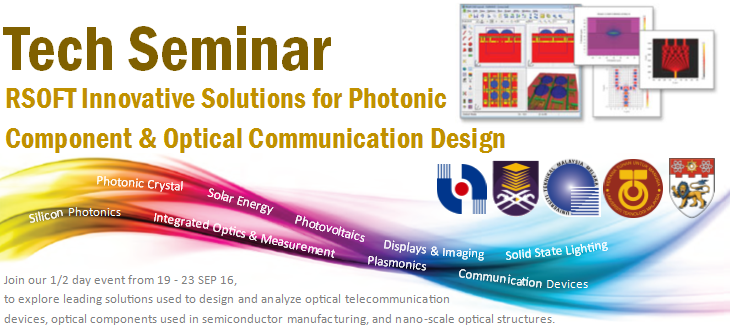
Optics and photonics is the science and application of light. More specifically, optics is a branch of physics that examines the behavior and properties of light and the interaction of light with matter. This includes the entire spectrum of visible light and other invisible light, such as microwaves and x rays. Photonics is the science and technology of generating, controlling, and detecting photons, which are particles of light.
Professionals in the field of optics and photonics examine the behavior and properties of light, and how light interacts with all kinds of materials – even human tissue. They work with devices and instruments that detect, manipulate, and otherwise control it, conducting research and applying discoveries to the design and development of such technologies as advanced manufacturing, robotics, medical imaging, next-generation displays, battlefield technologies, entertainment, biometric security, image processing, communications, astronomy, and much more.
New discoveries in these fields open the door to addressing and solving the challenges of a modern world, enhancing the quality of life by creating jobs; safeguarding health, safety, and security – and much more.
Photonics systems and components design are rapidly evolving. Technical requirements and technical approaches for these systems are increasing in complexity and performance to such an extent that the limiting factor on the final product may be the capabilities of the photonic design software. Therefore, choosing a software product that supports the largest array of modeling and simulation features is the best way to ensure that your photonic products are differentiated in this competitive market.
AGENDA
- Photonic Component Design and Simulation using RSOFT
- Case Study : Hybrid optical & Electronic Simulation of Silicon photonic Devices
- Optimizing OLED with Angular uniformity of Colour and Intensity
- Case Study : The Influence on Image quality of CMOS image sensor with micro structures
- Question & Answers Session.
As RSOFT Photonic family of product covers a very wide spectrum of applications, this seminar will be focusing on photonic component design challenges. RSOFT Photonic Component Design Suite will be used to illustrate various design and simulate both passive and active photonic devices for optical communications, optoelectronics and semiconductor manufacturing deployment.
|
||||
WHOM SHOULD ATTEND :
Researchers, Scientists, Designers, Engineers, Academician or Individual involved in research, design, analysis, optimize and development of photonic components design applications:
• Photonic Communications Devices
• Display and Imaging - Interfacing with ray tracing
• Integrated Optics
• Photonic Materials
• Polarization and Fiber Measurement
• NanoPhotonic -
• Photonic Crystals & Silicon Photonics
• Plasmonics
• Solar Energy and Photovoltaics
• Solid-State Lighting
If you have any enquiries, please contact us at:
Solutions 4U Sdn Bhd (706527-A)
72-3C, Jalan Puteri 2/4, Bandar Puteri, 47100 Puchong, Selangor.
Contact: +603 8063 9300 Email: enquiry@solutions4u-asia.com
Solutions 4U Pte Ltd
259 Onan Road, Singapore 424651
Contact: +65 6468 3325 Email: enquiry@solutions4u-asia.com
To unsubscribe, kindly click here
.jpg)